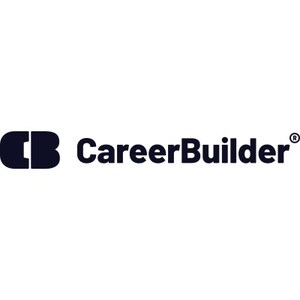CareerBuilder Releases Ten Employment Trends to Watch in 2011 Based on Nationwide Survey
CHICAGO, Jan. 6, 2011 /PRNewswire/ -- With 2011 shaping up to be a better year for job growth, CareerBuilder surveyed more than 2,400 employers and 3,900 workers nationwide to identify ten key trends in business, hiring, work culture and job search. The survey was conducted by Harris Interactive© from November 15 to December 2, 2010 across industries and company sizes.
"The recession produced fundamental shifts in how companies and workers view the market," said Brent Rasmussen, President of CareerBuilder North America. "Businesses are becoming more agile and changing direction. They're operating leaner and recruiting for opportunities in emerging areas. Workers are transitioning to new fields, are more open to relocation and are more apt to consider opportunities outside of their current employers."
- Shifting Business Direction – Forty-two percent of employers said their company changed its business direction as a result of the recession. The majority of these employers kept their core business, but added new revenue streams. More than one-quarter (27 percent) of those who shifted business direction reported they changed their core business altogether or expanded into areas that will eventually become their core business.
- Working Leaner – Thirty-five percent of employers reported that their current staffs are smaller than pre-recession levels. Of those employers, most anticipate no adjustments to staff levels in 2011, with 57 percent reporting that they have become accustomed to handling the workload with less headcount. Others pointed to their business changing focus and hiring in other areas.
- Changing Jobs – Workers are becoming more optimistic about their job prospects in the New Year. Fifteen percent of full-time, employed workers are actively seeking a new job. Seventy-six percent reported that, although they are not actively looking, they would change jobs in 2011 for the right opportunity. Workers aren't necessarily focused on a bigger paycheck. Sixty-eight percent reported that affordable benefits are more important to them than salary.
- Creating New Functions – Along with more traditional job opportunities, employers are also adding new functions within their organizations in response to popular movements. Jobs centered around social media, green energy and healthcare reform are being added in the New Year. Hiring managers also reported demand for "cyber warriors" to protect Internet sites from security breaches or fraudulent activity.
- Video Interviewing – With smaller recruiting staffs facing larger amounts of job applications, employers are turning to technology to help identify viable candidates. Six percent reported they have conducted video interviews with potential job candidates while 11 percent plan to do so in the New Year.
- Less Moonlighting – While making ends meet continues to be a challenge for many U.S. households, less workers are reporting the need to work more than one job. Twelve percent plan to take on second jobs in 2011, compared to 19 percent last year.
- Taking a Global Perspective – Nearly one-in-five U.S. employers (18 percent) reported they will be hiring for their operations in other countries in 2011. Five percent stated they will likely recruit workers from other countries to work in the U.S.
- Relocating Talent – Of workers who were laid off in the last 12 months and found new jobs, 23 percent relocated to a new city or state. Looking to the New Year, 33 percent of employers stated they would be willing to pick up the moving tab for select candidates.
- Promoting Without Pay – Forty-one percent of employers are concerned about losing their top talent as the economy improves. While the majority of employers plan to increase salaries for existing staff in 2011, 39 percent will not be providing raises. As a gesture of recognition to employees, 13 percent are offering higher titles, but without pay increases.
- Going Casual – Employers are becoming more relaxed about set schedules and dress codes as they take measures to enhance the overall work experience. One-third (33 percent) of employers expect to offer more flexible work arrangements such as telecommuting and alternate schedules in 2011. Fifteen percent reported they will provide a more casual dress code.
Survey Methodology
This survey was conducted online within the U.S. by Harris Interactive© on behalf of CareerBuilder among 2,482 U.S. hiring managers and 3,910 U.S. workers (employed full-time; not self-employed; non-government) ages 18 and over between November 15 and December 2, 2010 (percentages for some questions are based on a subset, based on their responses to certain questions). With pure probability sampled of 2,482 and 3,910 one could say with a 95 percent probability that the overall results have a sampling error of +/- 1.97 and +/- 1.57 percentage points, respectively. Sampling error for data from sub-samples is higher and varies.
About CareerBuilder®
CareerBuilder is the global leader in human capital solutions, helping companies target and attract their most important asset - their people. Its online career site, CareerBuilder.com®, is the largest in the United States with more than 22 million unique visitors, 1 million jobs and 40 million resumes. CareerBuilder works with the world's top employers, providing resources for everything from employment branding and data analysis to recruitment support. More than 9,000 websites, including 140 newspapers and broadband portals such as MSN and AOL, feature CareerBuilder's proprietary job search technology on their career sites. Owned by Gannett Co., Inc. (NYSE: GCI), Tribune Company, The McClatchy Company (NYSE: MNI) and Microsoft Corp. (Nasdaq: MSFT), CareerBuilder and its subsidiaries operate in the United States, Europe, Canada and Asia. For more information, visit www.careerbuilder.com.
Media Contact: |
|
CareerBuilder |
|
Jennifer Grasz |
|
773-527-1164 |
|
SOURCE CareerBuilder
WANT YOUR COMPANY'S NEWS FEATURED ON PRNEWSWIRE.COM?
Newsrooms &
Influencers
Digital Media
Outlets
Journalists
Opted In





Share this article